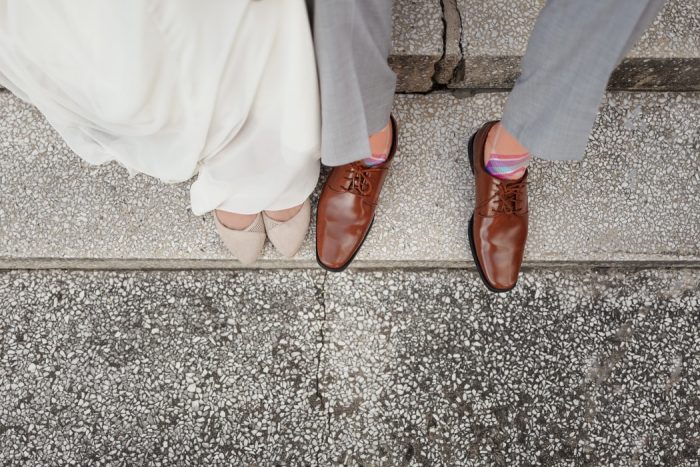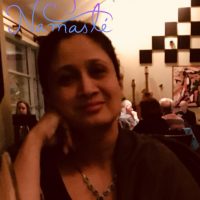In Hindu mythology, anything feminine was half of the whole, like Purush and Prakriti or yin and yang. Or like the sun and the moon. Can you imagine day, energizing and empowering; without night, soft and rejuvenating? The ovum without the sperm? Both were equally revered and worshipped. If anything, like Durga, the warrior goddess, Laxmi, the goddess of wealth or Saraswati, the goddess of learning, she was revered more than the yang or the sun. Even though the sun provided the life-giving resources, it was the moon that kept life nourished and comfortable. There was no attempt on the yin to become the yang, or the yang to become the yin. Only on planet earth is prakriti (nature) nourishing. All other planets are devoid of life. The forces of nature operate through man and woman too.
Growing up, hindu mythology sounded like a bunch of archaic ideas. The future of women belonged to heady empowerment through education, jobs, equal pay and rubbing shoulders with men as leaders, soldiers, doctors, instead of merely nurses. I became the empowered woman, unlike my grandmothers, who were barely educated and mothers to a football team of kids. With weary breasts sagging, they were often second class citizens within their homes. In my youth, I was empowered by a new world order full of freedom, equality, and an authoritative voice. Yet, all does not feel well.
As a mother of two, slow defusing delusion set in. I could not be a successful fire or water. I am half and half, unsure within. While women were earnestly becoming fires, men were reluctant to rub shoulders with women as equal caregivers within the homes. They are being dragged, screaming and kicking, to become the waters of nourishment.
This new world heralded a host of surprises: the decimation of the family unit and marriages as we have always known them. The rise of burnt-out, single-parent families, who are now the sun and moon to their kids. All alone, bereft of the safety net of partners and extended families, the marriage institution is fast becoming an archaeology structure of the past. Women are way better off than before, without a doubt. You can’t beat them, subjugate them, take away their property or turn them into sex slaves with impunity that was unquestionably rampant in all cultures across the world, before the twentieth century.
It is the light of the twentieth century that released the women from servitude. Suffrage, women taking over men’s jobs during WWII, universal education, birth control; we women are deeply indebted to the enlightening twentieth century for releasing us from physical, social, psychological and financial servitude that we were universally subjected to.
So why the disillusionment? An unconscious sense of unsettlement? Has feminism failed? Women are definitely better off, but the ‘family’ is now on the endangered species list. The mother, father, and children unit, with extended family, however vicious they were to the woman of the household, is now resolutely decimated. This structure held over twenty centuries because women were the bedrock of the family. She ran a restaurant, hotel, old-age home, daycare centre, cleaning, and errands company all by herself in return for no money, respect or title deeds. Now all these jobs are subcontracted to the government bodies, and women are free from their yokes. They are educated, with careers, traveling, free of encumbrances, with multiple partners and often juggling kids. And society, in general, is happy to move along with the growth of women’s emancipation. The problem now ringing alarm bells is of women choosing not to procreate. The voiceless women until the twentieth century had to, but now they are exerting their will like never before.
But nothing has changed for the kids or the elderly. They still need the care, at greatly escalated costs and inferior services. Because no professional setup can emulate the parent’s personally invested emotions. We still need women as the bedrock of families. The feminine force naturally abundant with the waters of nourishment. What would it take to run all those programs at a fraction of the cost? A revolution in thinking? Investment in a mother, is an investment in society. This time the whole society should be invested in her well-being. Women should receive tax dollars for running an enterprise within her home. She will produce citizens for the country, nourish them, and look after the elderly. We should take a hard look at our practices. Is it not more economical and honourable for a woman to be supported by all of society? Wages for nourishment? Motherhood tax dollars? Of course, only if she wants to. No free woman will go back to the cages. Maybe this could be the best, most honourable way. Instead of government run daycare and old-age homes. Let them support each mother in her own home.
The question that comes to my mind, is how before the iron tool inventions, and hunters became settlers, these liberal ideas of women being half of the whole came into being? The Shiv-Parvati stereotype is as old as the earth in Hindu mythology. Once again, I look back to the Hindu mythologically story of Shiva as Purusha (igniter of life) and Parvati as Prakriti (nature)? Is there a message we missed?
I think we did. Researching the history of women, there were sparingly few cultures where women were truly honoured in life. And yet in early Vedic times, before the corruption set in, it seems women were equal to men, not in terms of duties, in terms of respect and honour. They were Ardhangini -ardh which means ‘half’, and angini, which means ‘the whole body’. Not two equal or identical parts, just a unique half part that completed the whole. They owned property and presided over important cultural events. They were water, free-flowing and honoured. To run society we need both, fire and water. We need to understand how to support and honour them in their natural roles.
Not by turning water into fire, but by allowing water to be the playful, rich, empowering, nourishing Ganga waters gushing from the hair-locks of Shiva and turning parched earth into green belts wherever she flows.












Read 0 comments and reply